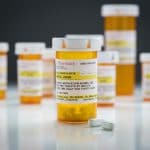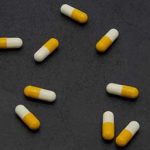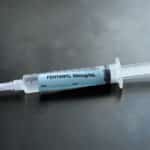Attention-deficit hyperactivity disorder (ADHD) is a common mental health disorder in the United States. It affects people of all ages but the majority of individuals being treated for it are children and adolescents.
Most ADHD medications are stimulant drugs and controlled substances with a high potential for abuse. Stimulant drug abuse can lead to harmful health consequences and increase the risk of developing a substance use disorder (SUD).
Prescription Stimulant Medications
ADHD is a disorder that can cause impulsive behavior, distractibility, decreased attention, and behavioral difficulties. The symptoms of ADHD can be treated with stimulant drugs, which can help individuals increase focus and attention.
Stimulant drugs can have different formulations, including short and long-acting, depending on the treatment needs of the individual.
Short-Acting Stimulants
Short-acting stimulants, also known as immediate-release pills, start working quickly but they wear off between 2 and 6 hours.
Short-acting stimulants include:
- Ritalin (methylphenidate)
- Methylin (methylphenidate)
- Focalin (dexmethylphenidate)
- Adderall (amphetamine/dextroamphetamine)
- Dexedrine (dextroamphetamine)
- Daytrana (methylphenidate)
Long-Acting Stimulants
Long-acting stimulants, also called extended-release pills, can treat symptoms all day and the effects last between 4 and 12 hours.
Long-acting stimulants include:
- Methylin ER (methylphenidate)
- Metadate ER (methylphenidate)
- Ritalin SR (methylphenidate)
- Ritalin LA (methylphenidate)
- Metadate CD (methylphenidate)
- Concerta (methylphenidate)
- Focalin XR (dexmethylphenidate)
- Adderall XR (amphetamine/dextroamphetamine)
- Vyvanse (lisdexamfetamine)
If you have a history of substance abuse or are concerned about the risks associated with stimulant medications, your healthcare provider may suggest a non-stimulant alternative.
Non-stimulant medications used to treat ADHD include:
- Strattera (atomoxetine)
- Kapvay (clonidine)
- Intuniv (guanfacine)
- antidepressants
Effects Of ADHD Stimulant Medications
Stimulant medications increase activity in the central nervous system, which contributes to its effects of increased energy and focus. In addition, stimulants can also cause a rush of euphoria, which is why they are associated with a high risk of abuse.
Stimulants can also cause several unwanted side-effects, even if used as directed.
Common side-effects of stimulants may include:
- dry mouth
- suppressed appetite
- difficulty sleeping
- aggression
- high blood pressure
- irregular heartbeat
Stimulants also increase the production of two important neurotransmitters: dopamine and norepinephrine. Dopamine is associated with the reward pathway in the brain. Stimulant drug abuse can cause a spike in dopamine that increases the risk of addiction.
Norepinephrine is involved with blood vessels, blood pressure, heart rate, and blood sugar. Heavy stimulant use can have dangerous effects on the cardiovascular system, including heart attacks and irregular heartbeat.
Stimulant Medication Overdose
ADHD medications stimulate important functions, like heart rate, and too much can cause an overdose. Taking a higher dose than prescribed can cause paranoia, panic, hallucinations, and fever.
In addition, a stimulant overdose can cause:
- tremors
- increased breathing
- confusion
- heart attack
- seizure
- coma
Prescription Stimulants Abuse Potential
The majority of prescription stimulants are schedule II controlled substances, which means they have significant potential for abuse. ADHD stimulant medications can be abused for their effects of increased focus and attention, as well as their euphoric effects.
Misusing a prescription can interfere with ADHD treatment, cause adverse effects, and may lead to a stimulant addiction.
Signs of stimulant abuse may include:
- taking a higher dose than prescribed
- taking your medication for its euphoric effects
- crushing, snorting, or injecting the pills
- taking someone else’s prescription
Using someone else’s stimulant medication can be dangerous, especially if you are not diagnosed with ADHD and not used to the effects of the medication.
Long-term stimulant abuse can overwhelm the brain with dopamine, which can cause more severe side effects, like weight loss, paranoia, and heart problems.
Stimulant Medication Dependence
Frequent drug abuse can cause the brain to become dependent on stimulant drugs. Dependence means you may experience mild to severe withdrawal symptoms if you stop taking them. Stimulant withdrawal is not life-threatening but it can be severe and interfere with functioning.
Withdrawal symptoms may include:
- fatigue
- depression
- difficulty sleeping
- anxiety
- increased appetite
- intense cravings
Stimulant dependence can be treated in a detox facility, which provides 24/7 monitoring and a safe environment to recover. If you suspect you or a loved one has developed a stimulant addiction, a treatment program may be necessary.
Stimulant Addiction Treatment
A professional addiction treatment center can treat addiction and co-occurring mental health disorders. There are currently no FDA-approved medications to treat stimulant abuse, however, behavioral therapy is an evidence-based treatment strategy that can help you overcome addiction.
Northeast Addictions Treatment Center offers a variety of outpatient treatment options, including behavioral therapy. To learn more about our stimulant addiction treatment programs, call our helpline today to speak with a specialist.
Sources
Written by
Northeast Addition Editorial Team
©2024 Northeast Addition Center | All Rights Reserved
This page does not provide medical advice.



